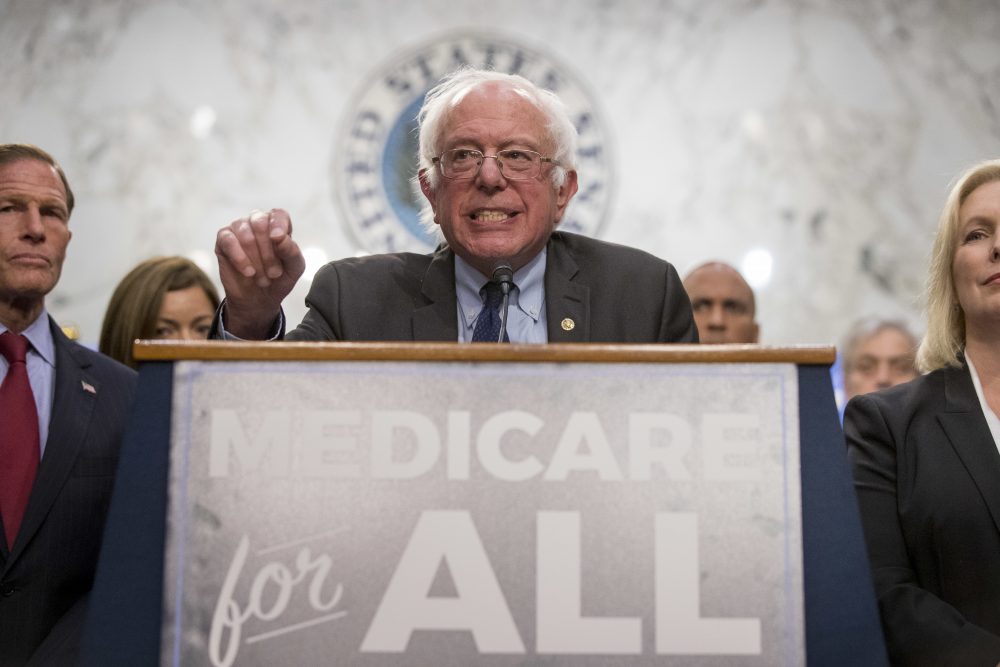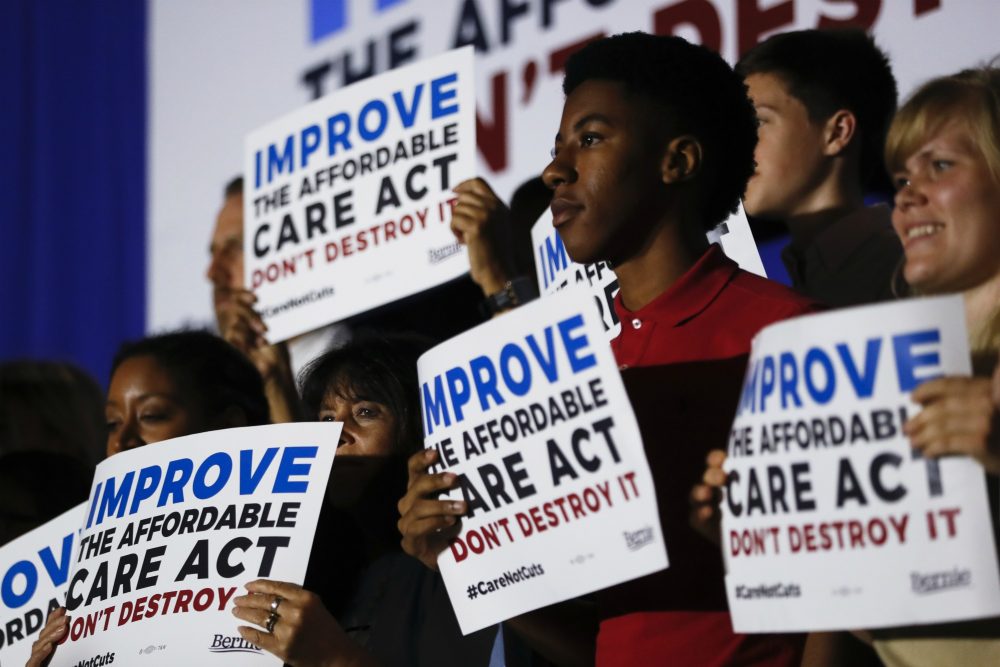Advertisement
Commentary
Bernie Sanders’ Single-Payer Swoon

They’re popping champagne corks on the Harvard and Berkeley cocktail circuits. Bernie Sanders filed his “Medicare for All” bill to erect a single-payer system, plugging his plan from a prime perch on The New York Times op-ed page. (So much for the conspiracy theory that mainstream media censor radical ideas.)
The bill is radical, at least for the current, Republican-controlled Congress, which everyone agrees won’t pass the legislation, including Sanders, the independent senator from Vermont. The good news is that that that’s no reason to avoid debating a serious idea. The bad news is that the bill is still a stinker.
Normally, this is where we’d cue the pitfalls-of-single payer part. But first, we need to hose down the fevered scaremongers on the right who oppose single payer for dumb reasons, insisting that would turn us into a goose-stepping Amerika. One GOP ad darkly warns not only of higher taxes under Sanders’ plan (true) but of “government control of your doctor, hospital and even prescriptions.”
BS (I don’t mean Bernie Sanders).
Single payer involves government funding for health care, not control of it. Most doctors and hospitals would remain private actors, and accessible to patients who were seriously ill. A government-set budget would require doctors and hospitals to delay or avoid non-emergency and unnecessary care. But we ration care now, by income, for the 28 million Americans still lacking insurance. The critics are clueless or lying about the many nations in which single payer provides affordable, quality care.
But those other nations’ experience also damns Sanders’ bill. Rather than build on what they’ve done, he’s taken a running leap off the dock of reality.
Sanders would spend tax dollars on health benefits far in excess of those in other single-payer nations. “The Canadian health care system, for example, does not cover vision or dental care, prescription drugs, rehabilitative services, or home health services,” as Sanders would, Vox’s health care expert wrote.
“Instead, two-thirds of Canadians take out private insurance policies to cover these benefits.”

The mouth-breathers among the Bernie Bros who rail against capitalism should be chagrined by that fact. In short, single payer’s strongest argument — its successful implementation elsewhere — got left on the cutting room floor by Sanders. His plan, the Vox writer says, “has no analogue among the single-payer systems that currently exist. By covering a more comprehensive set of benefits and asking no cost sharing of enrollees, it is likely to cost the government significantly more than programs other countries have adopted.”
Advocates might say the bill is just an ante, to be supplemented with details in negotiations later. Would they tolerate the same excuse for Republican tax cut plans, which frequently omit the unpopular spending cuts they’d necessitate? (If you answered that question “yes,” you should have stayed in school.) Given that Sanders has advocated and thought about single payer for decades, a plan this flawed is lazy legislating at its worst.
Just how would Sanders pay for his expansive health-care utopia? Not by hitting up consumers: Except for prescriptions, they’d be shielded from out-of-pocket costs. (Medicare doesn’t do that, and many single-payer systems abroad don’t, either, Vox reports.) His office has released several financing options, including a 7.5 percent payroll tax and a 4 percent income tax on families making more than $29,000.
We must await the Congressional Budget Office’s analysis on whether these would raise the sums Sanders expects, whether that would be enough to cover his generous plan, and the economic consequences of what even liberals would agree are broad-reaching tax hikes.
Meanwhile, there’s another open question: Might the Sanders scheme, or any single payer makeover, erect a speed bump that would slow medical breakthroughs?
A 2001 poll asked doctors to name medicine’s most important innovations in the previous generation. Of the half dozen top choices, one, balloon angioplasty, came from abroad. Another, mammography, was invented in Germany but refined in the U.S. The remaining four (MRIs and CT-scans, ACE inhibitors for heart failure and hypertension, statins for high cholesterol, and coronary artery bypass grafts) were all American. Since 2001, the U.S. has racked up almost as many Nobels in medicine as the other winning countries combined.
It would be nice to think we’re smarter than everyone else. But lots of contrary evidence (look who we put in the Oval Office) rules out jingoism as an explanation. That means our dominance owes to something systemic, and a German doctor who studied us and Europe in 2005 concluded that Americans’ free-spending system is good for research.
Rather than build on what [other nations have] done, [Sanders has] taken a running leap off the dock of reality.
“It is almost impossible to predict the future value of funding for biomedical science or for scientific activity in any field of interest,” he wrote. “It is believed here that the probability for a high-risk project to receive funding in the USA is significantly higher compared with Europe.” The U.S. has more funding sources, including generous private donations, to gamble on unproven therapies, he said.
Would Sanders’ or any other single-payer plan finance needed innovation? That’s as murky at this point as the ins and outs of what such a plan would cost and how it would be paid for. But as wise progressives have said, the goal is universal, quality, affordable health care — full stop. Single payer is one route to that goal (though almost certainly not the way Sanders has mapped it). But so are private, multi-payer systems from Germany to Switzerland to the Netherlands.
None of those systems suffers the U.S.’s inflated health prices, the real driver of our grotesquely expensive medicine. Fixing that problem should be our focus. Instead, the GOP brought ideological zealotry to its drive to kill the Affordable Care Act and paid dearly. Trying to kill the ACA for single payer has some Democratic leaders worried that their party will repeat Republicans’ blunder.
They’re asking their members to rationally consider health care. With knee-jerks in their base demanding single payer become a party litmus test, those leaders have their work cut out for them.
